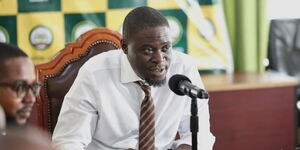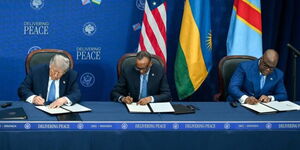President William Ruto, on Tuesday, disclosed plans to buy back part of the Ksh321 billion ($2 billion) Eurobond ahead of its maturity in June this year.
According to the World Bank, bond buybacks enable issuers to retire an outstanding debt before its maturity date.
Ruto, furthermore, aims to mitigate the government's liability on the debt and be granted a leeway to access new loans.
While addressing his fiscal policies on the sidelines of the Italy Africa summit in Rome, the head of state dismissed claims that the government would default on the bond.
"What they have recommended is we do a buyback in February, March, and then we go to the market," Ruto noted during an interview.
The head of state is grappling to offset the Eurobond that was borrowed by Kenya in 2014 from the European money market with a time-lapse period of ten years.
Currently, Kenya's approach to repaying the bond is being watched closely by overseas investors amidst the weakening shilling.
"Thank God they were right. The markets have opened for Kenya, as it has for most other countries," the head of state noted.
According to Ruto, initially, the government had planned a Ksh48 billion ($300 million) buyback which was scheduled for December 2023 but financial advisors watered down the plans.
Despite the buyback plan being dismissed, Treasury Cabinet Secretary Njuguna Ndung'u clarified that the government would still reconsider it in the early months of 2024.
In December last year, the government paid Ksh10. 8 billion ($68.7) million in interest due on the US$2 billion Eurobond.
A huge chunk of the money went into funding projects during the reign of former President Uhuru Kenyatta.
Kenya has made significant strides in debt repayment, a factor that has distinguished it from its neighbours like Ethiopia which defaulted on paying the interest fee on its $1 billion Eurobond.












